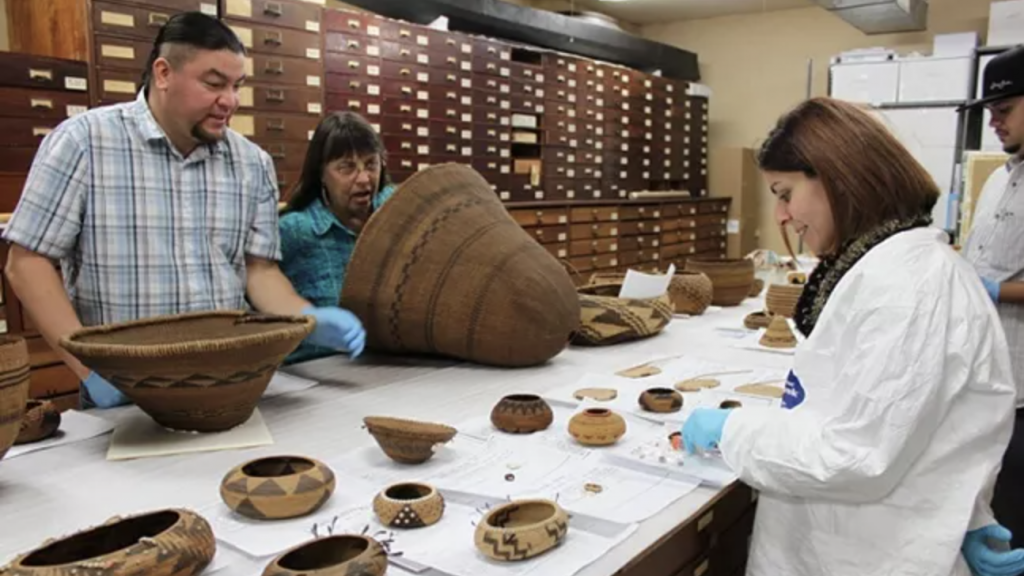Created Equal: Former museum curator explains how he returned items to Native American tribes
Cary Junior II August 19, 2024Chip Colwell was responsible for repatriating the collection of Native American items at the Denver Museum of Nature & Science for 12 years.

Any institution or state or local government agency (including any institution of higher learning) that has possession or control of human remains or cultural items and receives Federal funds must comply with NAGPRA.
In museums across the United States, you can see artifacts and human remains that belong to the native peoples who were here before our country existed. But do you ever wonder where the institutions got those things or whether native people had any say about these displays of their culture?
The federal government considered these questions when the Interior Department enacted the Native American Graves Protection and Repatriation Act (NAGPRA) over 30 years ago. The regulations require museums and federal agencies to identify and return Native American remains and belongings. The interior department issued a final ruling in December of 2023 that encouraged museums across the country to remove Native American items and remains from display and begin the process of returning them to native peoples.
Chip Colwell was the senior curator of anthropology at the Denver Museum of Nature & Science for 12 years. He was responsible for repatriating the museum’s collection of Native American items. Colwell joined Created Equal on Monday to discuss the movement to reconcile science and history with the delicate nature of native possessions.
Subscribe to Created Equal on Apple Podcasts, Spotify, Google Podcasts, NPR.org or wherever you get your podcasts.
Guest
Chip Colwell is the founding editor-in-chief of SAPIENS, an online magazine about anthropological thinking and discoveries. He was the senior curator of anthropology at the Denver Museum of Nature & Science for 12 years. Colwell says repatriation is the process of untangling the conflict between science and culture.
“Our bodies are maps of our histories and identities, and the science can use those to understand who people were and the larger human story, and that’s not to be discounted. But what’s to say is that not everyone shares that view. When it’s your ancestor, your grandmother, or your great-great-grandfather you have something different at stake,” he said.
Listen to Created Equal with host Stephen Henderson weekdays from 9-10 a.m. ET on 101.9 WDET and streaming on-demand.
Trusted, accurate, up-to-date.
WDET strives to make our journalism accessible to everyone. As a public media institution, we maintain our journalistic integrity through independent support from readers like you. If you value WDET as your source of news, music and conversation, please make a gift today.
Author
-
Cary Junior II is an audio journalist and producer for The Metro on 101.9 WDET. Cary has worked as a producer or host on a number of projects. His work includes short and longform audio, documentary series and daily radio. In his five year career in journalism he has worked for Crooked Media, the Detroit Free Press, and now WDET - Detroit's NPR station.
